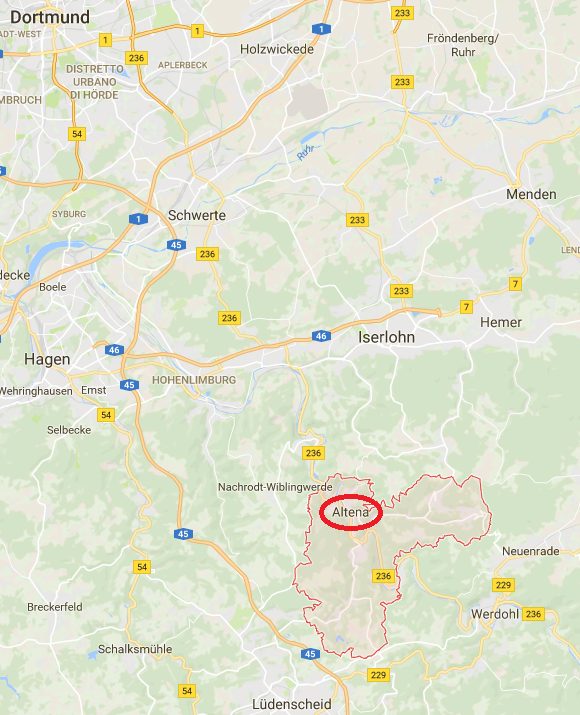Giuseppe Sandro Mela.
2017-11-30.
Bbc. Russia’s Putin signs law against ‘undesirable’ NGOs
«The Russian President Vladimir Putin has signed a bill which allows foreign organisations to be banned from operating in the country.
The law allows the authorities to prosecute foreign non-governmental organisations (NGOs) or firms designated as “undesirable” on national security grounds.
Individuals working for NGOs could face fines or up to six years in prison. ….
The definition of “undesirable” is open to interpretation, but the Interfax news agency said it would apply to organisations deemed to pose a threat to the “foundations of Russia’s constitutional order, defensive capacity and security”.
NGOs linked to politics in Russia already face restrictions under a 2012 law requiring them to register as “foreign agents”. »
*
Così la Russia rafforza la legge che regolamenta le attività delle ngo (ong) straniere in Russia.
«The bill is based on the 2012 law that forced NGOs to adopt a “foreign agent” label if they receive funding from abroad»
*
Tutti si affannano a dire che questo sarebbe l’ennesima dimostrazione del fatto che Mr Putin sia un dittatore, per cui gli aggettivi crudele e spietato dovrebbero essere gli allegati di obbligo.
Mr Soros ha pianto calde lacrime. Da perfetto filantropo aveva speso cifre da capogiro per mettere in Russia le sue ngo, in parte come testate giornalistiche che, essendo autonome e non di parte, riportavano quanto a lui confacente, d’altra parte le altre propagavano la fede liberal delle unioni lgbt cercando di convincere i russi a diventare perfetti pervertiti, ed infine una buona quota di ngo dedite a screditare il Governo Russo, aizzando alla rivolta. Quella brava gente vorrebbe che Mr Putin desse le dimissioni o, meglio, se ne andasse, nominando Mr Soros presidente della Federazione Russa. Non gli vogliono mica male, ci mancherebbe!
Ci si domanda per quale motivo Mr Putin non abbia accettato riconoscente tanta manna dal Cielo.
*
Abbiamo solo un dubbio.
Le ngo che si registrassero negli Stati Uniti sono tenute a denunciare la provenienza dei loro fondi, mentre in Francia e Germania non è permesso usufruire di fondi esteri, bensì solo di finanziamenti produttivi.
Orbene. La nuova legge russa ricalca quanto già deliberato nei paesi occidentali: non si vedrebbe quindi il motivo dello scandalo.
Nota.
Nella foto sono ritratte delle Pussy Riot intente a meditare sul loro passato, messe in luogo confacente.
→ Deutsche Welle. 2017-11-25. Vladimir Putin signs off on Russian ‘foreign agents’ media law
Russia’s president has approved a controversial bill to label internationally funded media outlets as “foreign agents,” signing the measure into law. Outlets such as US-backed Voice of America are likely to be affected.
*
The amendments on foreign media went into effect after President Vladimir Putin signed off on them on Saturday, allowing Russian authorities to label outlets as “foreign agents” for receiving funding from abroad. However, it would not apply to Russian media outlets backed by foreign capital.
Under the law, Russia’s Ministry of Justice will decide on assigning the controversial label to international media outlets on a case-by-case basis.
Last week, it published a list of several outlets that would likely be affected by the new law, including the US-funded Voice of America and Radio Free Europe.
Russian officials repeatedly stated that the measure was a tit-for-tat response after the United States made a similar move targeting Russia’s foreign broadcaster RT, formerly Russia Today, and the Sputnik news agency.
In September, the US Justice Department ordered the outlets to register as agents of foreign governments over the perceived spread of propaganda and alleged meddling in the 2016 US election.
Russia slammed the move as hypocrisy and an attack on media freedom.
Ramping up pressure for ‘foreign agents’?
It was not immediately clear which steps would be taken towards foreign media outlets in Russia.
The bill is based on the 2012 law that forced NGOs to adopt a “foreign agent” label if they receive funding from abroad. Since then, they are requested to feature the label on their paperwork, statements and other material. They are also subject to surprise raids and intensive checks, and they must report where they get their money from and how they spend it. The increased government pressure prompted many of them to close their doors.
The bill signed by Putin on Saturday has been rushed through both houses of the Russian parliament in just two weeks.












